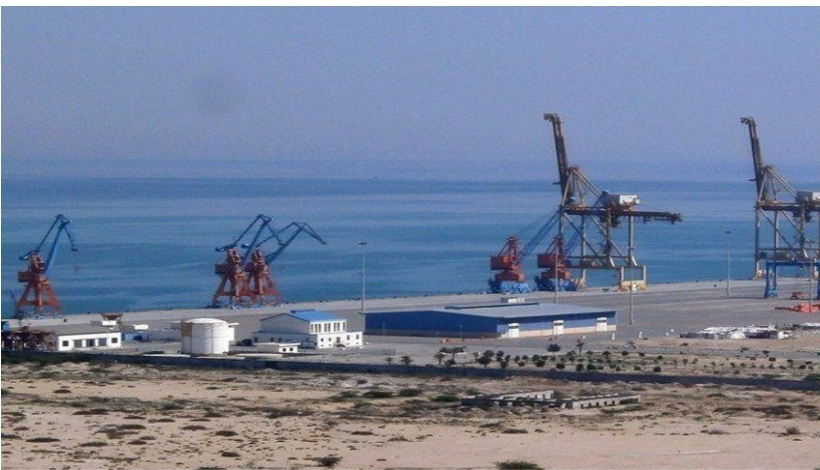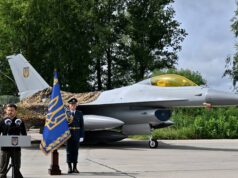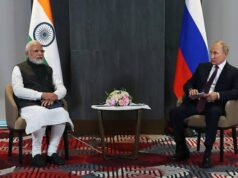Pakistan Hammers One More Nail In Its Gwadar Trap

The Debt Trap Created by China
Pakistan State Minister and Chairman Board of Investment (BOI) Muhammad Azfar Ahsan and Chairman of China’s National Development & Reform Commission (NRDC) He Lifeng have signed a new accord. The objective of the Joint Working Group (JWG) on Industrial Cooperation is seemingly to attract Foreign Direct Investment (FDI), promote industrialization and development of economic zones, and initiate, plan, execute, and monitor projects, both in public as well as private sector. However what is being hidden from the Citizens of Pakistan is that it is one more step taken to make Pakistan an economic slave of China. People of Pakistan will be fully enslaved.
Pakistan has been forced to include the much-delayed Gwadar power plant in its highest priority schemes for clearance of electricity purchase dues in a bid to address the biggest concern of China.
The step will provide electricity to the crown of China-Pakistan Economic Corridor – Gwadar – that faces 12 to 16 hours a day load shedding and whatever electricity is being supplied to it is imported from Iran.
Pakistan has also agreed to extend completion deadlines of some crucial Gwadar projects which will be providing enhanced security to Chinese citizens working in the port city. However at the same time it will making Pakistanis a second grade citizen and the Baluchis a third grade, in their own land.
Pakistan has ratified these decisions on Friday on the sidelines of the Prime Minister Imran Khan’s visit to China to obtain the much needed loan to bail out Interest payment crisis. To give effect to these decisions, Pakistan and China signed the minutes of the 6th Joint Working Group meeting on Gwadar which was held on December 30, 2021, according to a statement issued by the Prime Minister Office.
The minutes were signed by Asad Umar, the federal minister for planning, development and special initiatives, and Ning Jizhe, the vice-chairman of the National Development and Reforms Commission (NDRC).
The sixth JWG meeting had been held to review the implementation status of CPEC projects in the port city that has an important place in President Xi’s over a trillion dollar Belt and Road Initiative.
The Pakistani side agreed to include the 300 megawatts Gwadar power plan in its highest priority schemes for payment of invoices after commissioning of the project, according to the decision.
The project was part of the early harvest schemes of CPEC that had to be completed during the first phase of CPEC (2015-18). But Gwadar project is facing delays after the Chinese insurance company refused to provide guarantees for the loan due to payment problems being faced by other Chinese power projects that started power generation.
Around Rs250 billion of the CPEC power projects had been stuck up in the circular debt of which the government has now decided to clear Rs100 billion.
The revised deadline for financial close of the project had been June 2019 that was further extended to June 2021. China has missed the second revised deadline and Pakistan has again urged China to ensure early financial close of the project.
According to the original plan, the project debt and equity related outflows were to begin from 2018 but due to delays, the inflows have not yet begun.
The China Communications Construction Group (CCCG) is the main sponsor of the $542 million Gwadar power plant project.
Currently, Pakistan imports about 70MW electricity from Iran and out of this 14MW is allocated to Gwadar city. There are 12 to 16 hours a day load shedding in the port city, according to a tariff petition filed by the project sponsors before Nepra.
Till date, Gwadar has not been connected to the national power grid, which is another hurdle in the way of industrialisation.
In return of giving highest priority to the project, the Chinese government will now provide all necessary support and assistance for financial closure to complete the project at the earliest.
The Pakistani side will conduct discussions with Chinese sponsor as soon as possible on the extension of the project’s commercial operation date, according to the decision.
Both the sides also reviewed the implementation status of the Eastbay Expressway project. So far, about 95% project has been completed and China is expected to complete the project by April this year after getting a few extensions.
However, now China has requested an extension in the completion date due to non-resolution of the fish harbor issue, according to the Pakistani officials.
China has again emphasised over security of its citizens working on the Eastbay project site, although it noted that Pakistan did take actions to enhance the security for smooth movement of the Chinese workers to the project site.
For timely completion of the new Gwadar international airport, China has urged Pakistan to take prompt action for the construction of the desalination plant and electricity grid station by the Civil Aviation Authority, which it termed vital for timely completion of the project.
For the completion of the desalination plant in Gwadar, China has now shared a list of three Chinese companies for shortlisting. The project is expected to be completed in a year from the date of award of the contract to the Chinese company.
Pakistan and China have prepared a joint feasibility report for the construction of breakwater and has now requested China to consider the project for concessional financing under the CPEC umbrella.
However, Pakistan has concerns over the marketing plan prepared by the Chinese operators for the promotion of the Gwadar Free Zone. A report by the Board of Investment (BoI) had found that the China Overseas Port Holding Company (COPHCL) was marketing the incentives in the free zone beyond their scope.
The JWG meeting took stock of the decision to route the Afghan Transit Trade traffic through the Gwadar port, which has given new business to the port operators. The completion of the Basima-Khuzdar road by mid of this year is also expected to enhance the commercial viability of the Gwadar port.
“Long being marketed as the centre-piece of CPEC, Gwadar has yet to reach the heights of expected industrial development that can serve as a catalyst for domestic and foreign investment,” according to an official assessment by the BoI about the status of Gwadar projects.
Gwadar “has yet to even show its first glimmer of the promised industrial hub that can serve as a catalyst for domestic and foreign investment”, the findings of the BoI report revealed.
Pakistan also requested China to extend the 50-bed Pak-China Friendship Hospital to a 300-bed facility and add a nursing school that could be further upgraded to a medical college in the next phase. China has agreed to the extension and upgradation of the facility.
The engagement with China under JWG is envisaged to increase labour productivity in Pakistan, enhance industrial competitiveness, increase exports, and sustain diversification in exports basket.




